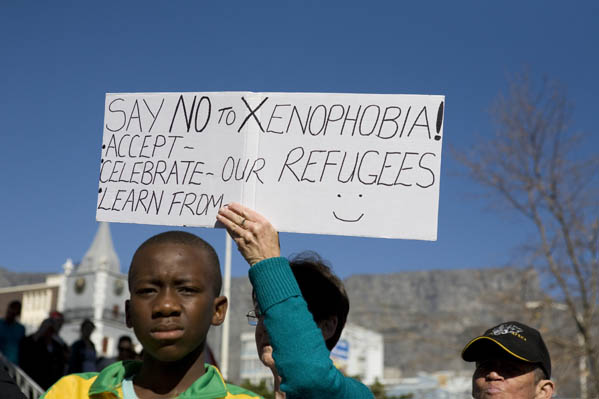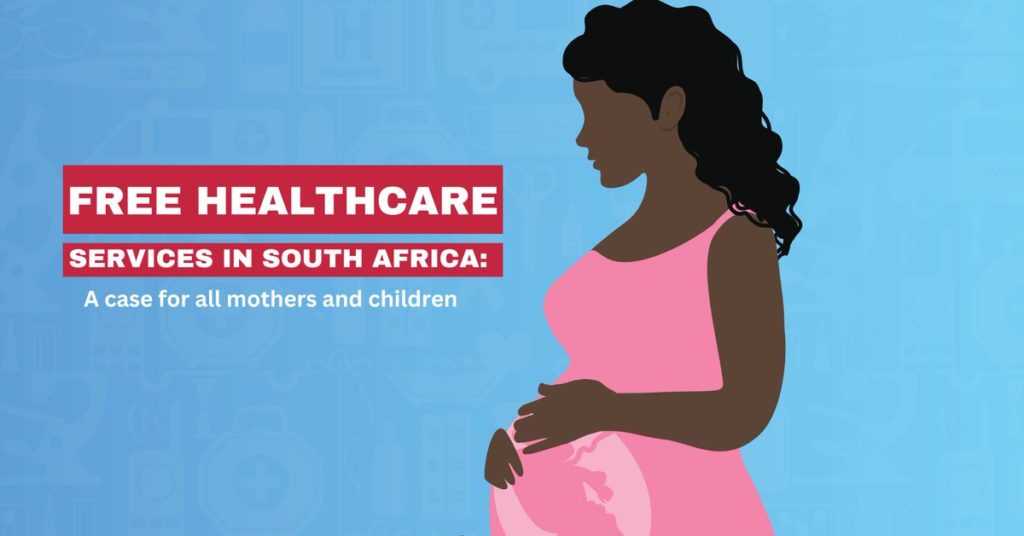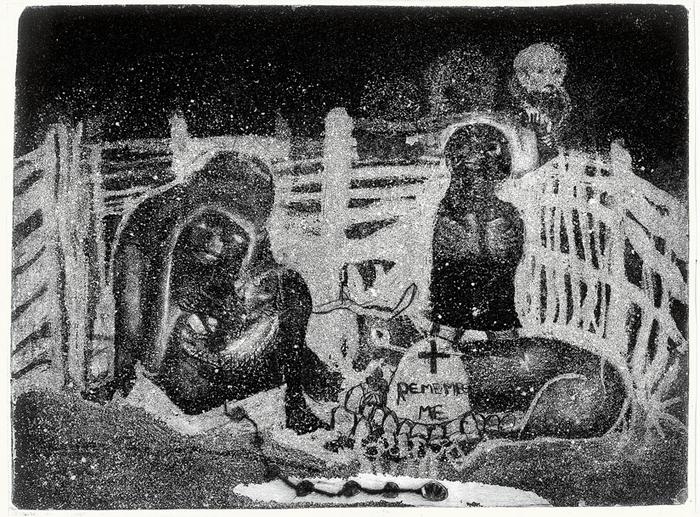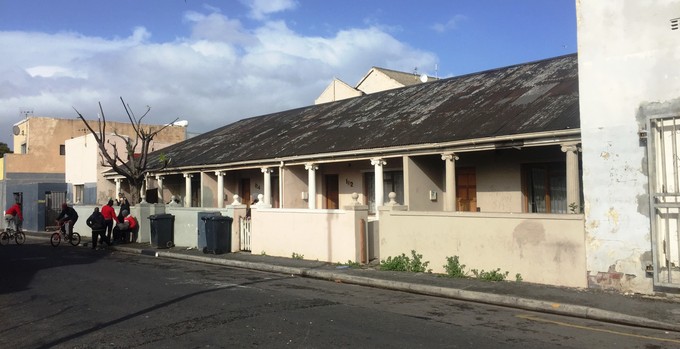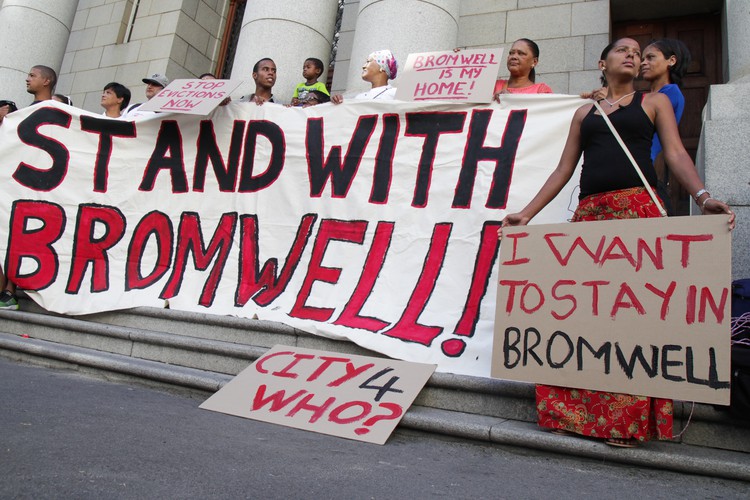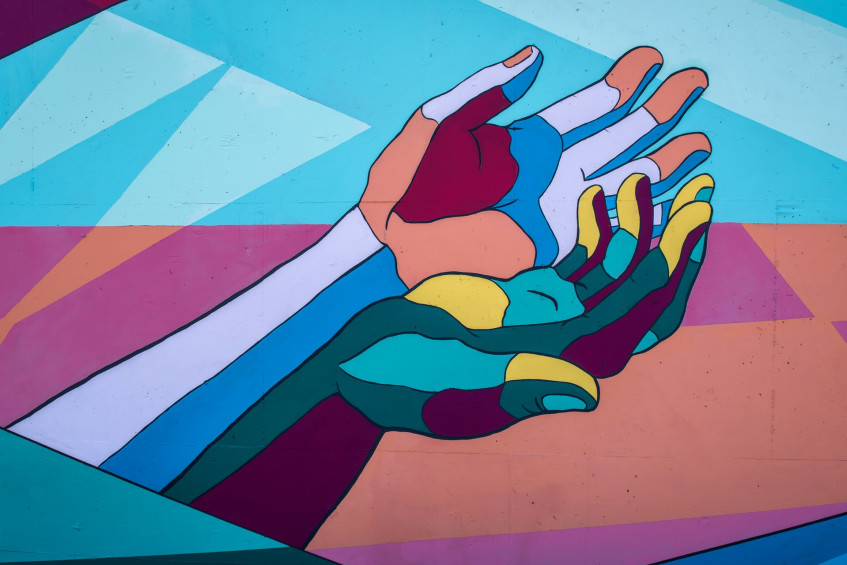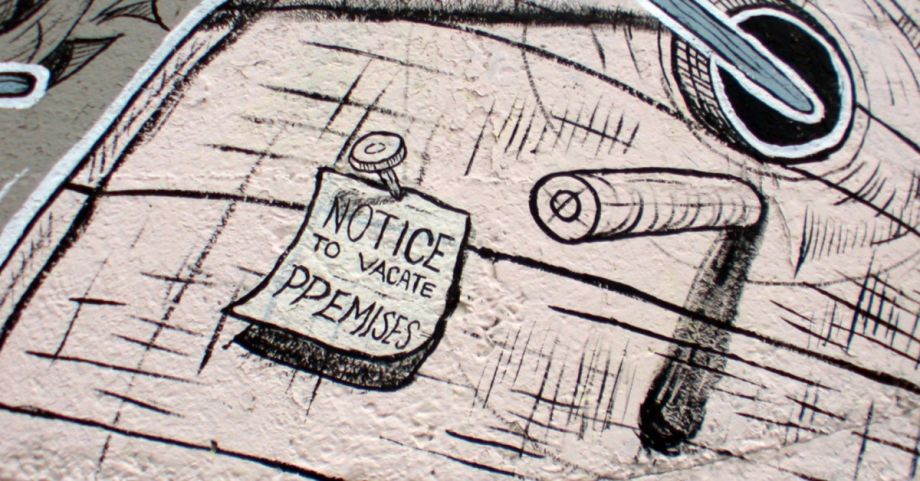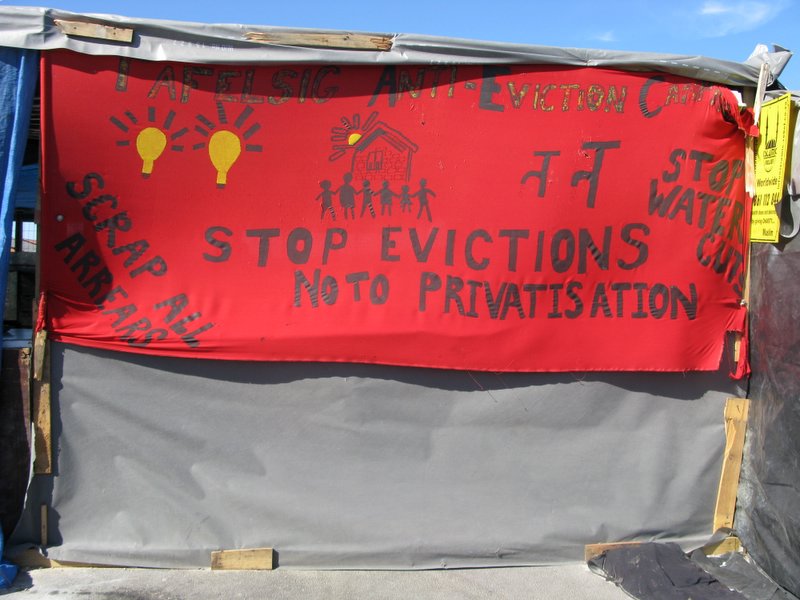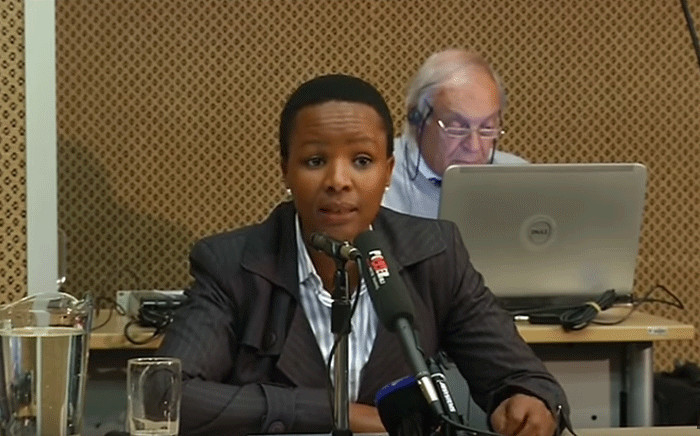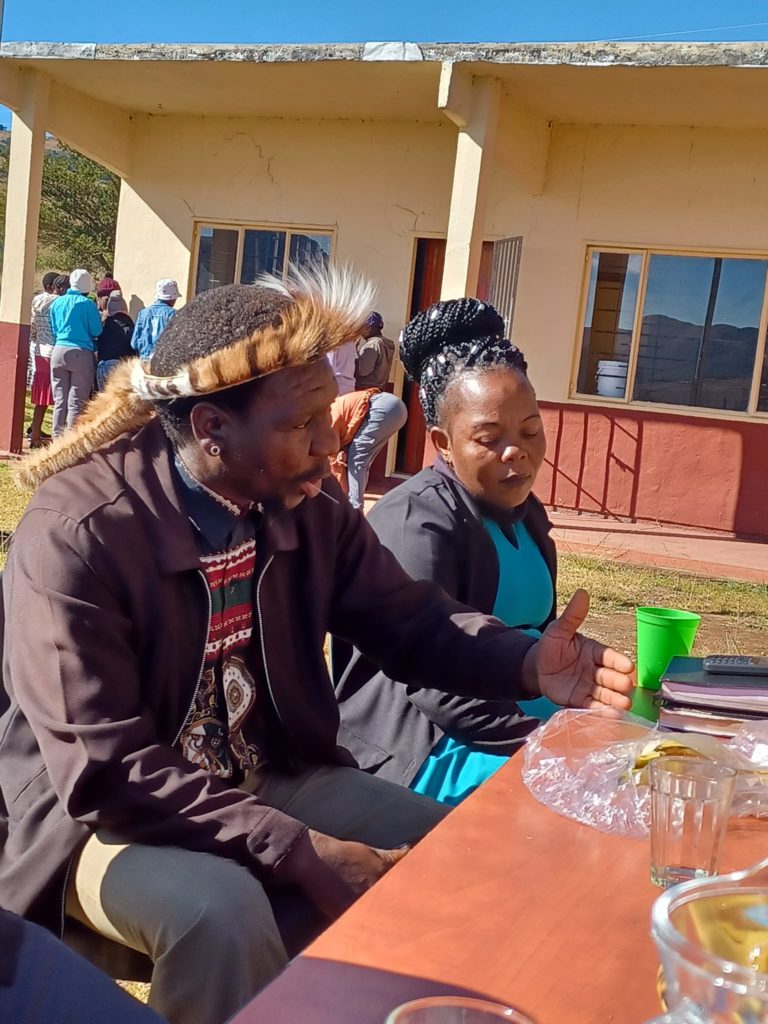
Your sole is broken
A fellow traveller
(a woman to boot)
observes as I stoop
to examine the sole
of an age-old boot
Knee-high they are
rescued me many times
from the searching hands
of apartheid’s police
(contraband stuffed
down my length of leg
the side-pockets usually
filled with meeting notes)
Your sole is broken
couldn’t keep up
with my striding
here there and
whereever too
Your sole is broken
perchance a slip
of the Freudian variety
in these challenging times
(who would have thought
as we are supposed to be
free from all iniquities
post-1994’s Majority Rule
Your sole is broken
can it be fixed
(do we actually want to
and at what cost)
or is it beyond repair
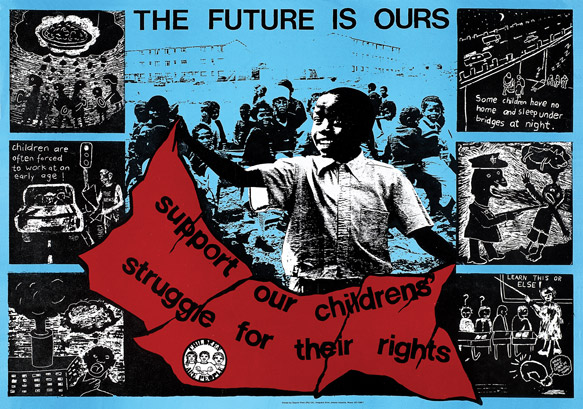
(By David Kapp)
(Image Credit 1: Community Arts Project / UWC Centre for Humanities Research) (Image Credit 2: Community Arts Project / UWC Centre for Humanities Research)
